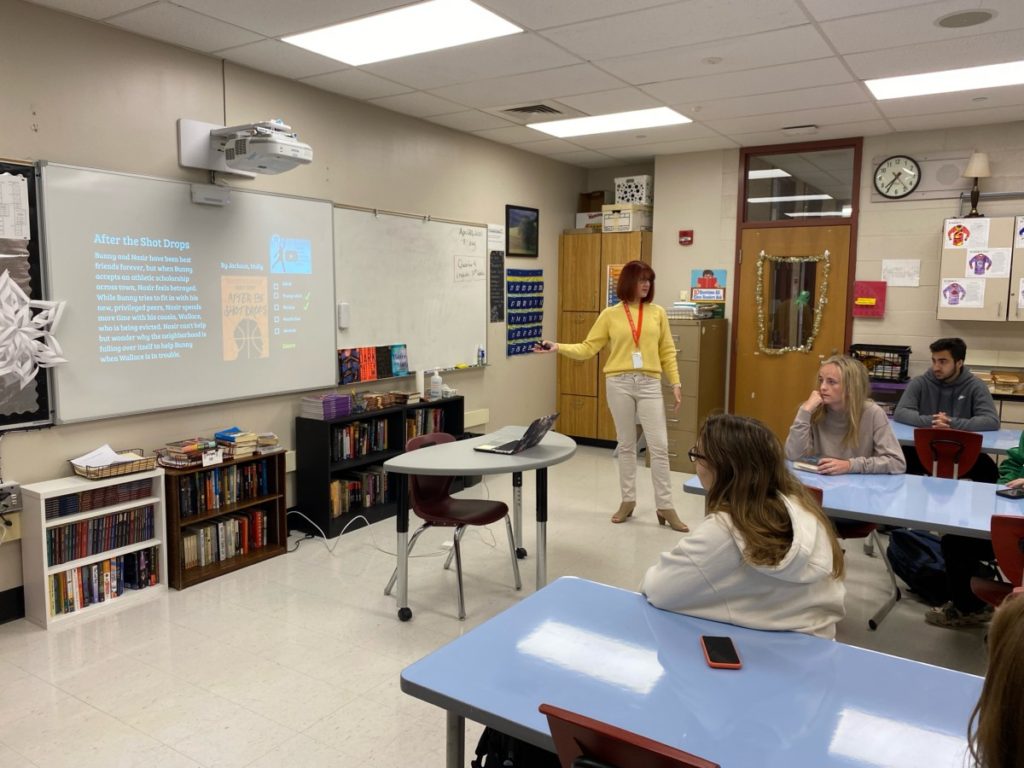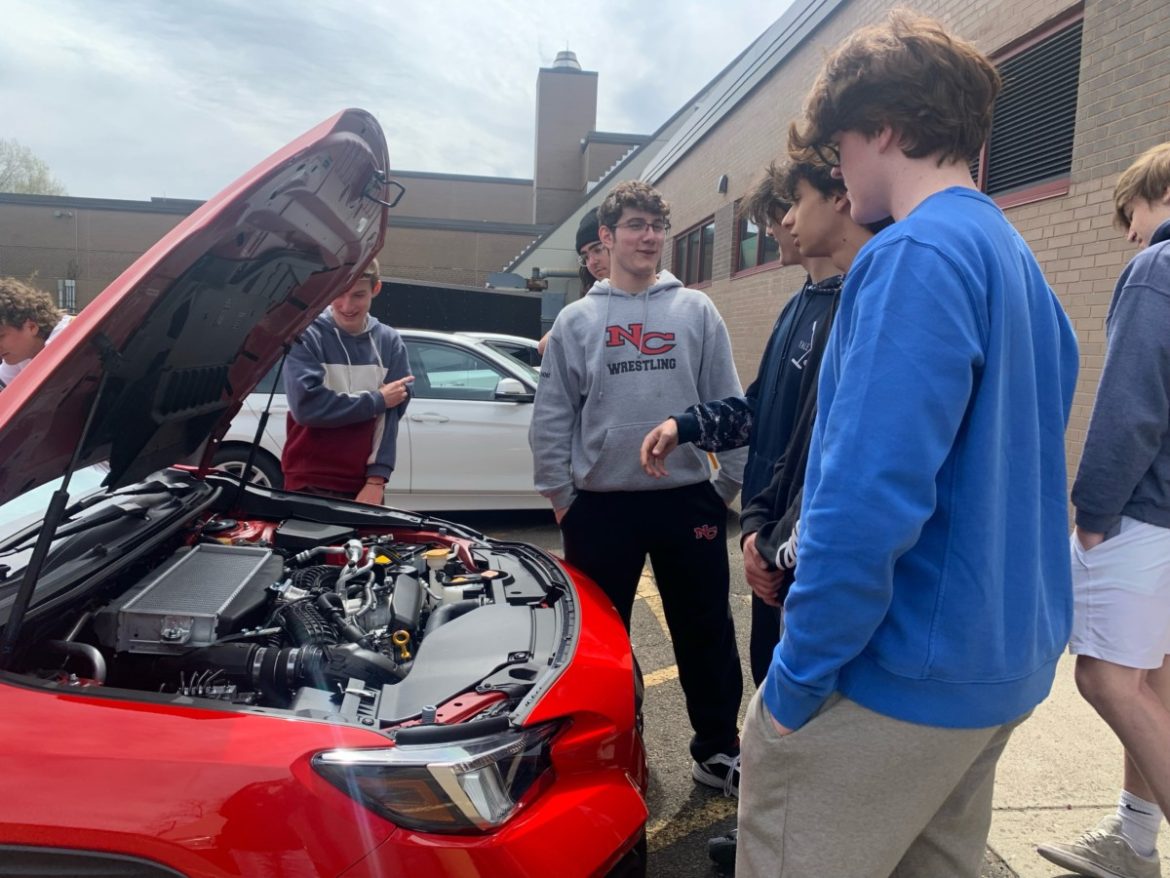Peyton Zaletsky, Editor-in-Chief
@peytonzcourant
Did you know that the district offers a class where students can learn how to repair their own cars? Or what about a course that allows students to compare cultures around the globe? Or even a course where students can sit, relax, and read a book of their choosing for over an hour?
If you haven’t heard of these classes, you are definitely not alone. The majority of students are unaware that classes like these exist because of the AP “arms race” that has swept the nation. Rather than taking classes they are truly interested in, students are feeling the need to take challenging AP or Honors classes in regular subjects, like science or math or history, because they feel that this is what colleges are looking for in an ideal student. For this reason, many of the unique courses that are offered are practically unheard of.
One of the uncommon courses that is offered is Cultural Anthropology, which is taught by Dr. Jonathan Schwartz. “Cultural Anthropology is the study of the norms, values, symbols, and beliefs of cultures across the globe; it offers a unique perspective on the rest of the world,” Dr. Schwartz said. “Why do some cultures allow polygamy? Why do some cultures believe in spirit possession? These are the kinds of questions we address in Cultural Anthropology, and these kinds of questions are simply not often part of the typical high school curriculum.”
The Anthropology course is able to hone the public speaking skills of students while also giving them the opportunity to discuss more complex issues without feeling judged by peers. “The type of student that would enjoy Cultural Anthropology is one that likes to discuss controversial topics without looking to make personal judgments about those with whom they disagree with,” Dr. Schwartz said. “In a class like this, we cannot only identify very different ways of understanding the world around us but also challenge ourselves to consider why we think the way we do, and what costs and benefits such cultural viewpoints afford us.”
Senior Erica Angiletta, who took the class last year, found it very beneficial to learn about a topic that she did not know a lot about. “People should try to take classes that they aren’t super familiar with,” she said. “Anthropology was so fun as it had lots of discussion and helped me learn about new topics that I would not have learned about in an AP class.”
The Science Research Program, which is taught by Science teacher Jessica Zych, is beneficial for students who are more interested in the STEM field. Ms. Zych believes that this course is a great choice for students who have a heavy interest in science, and also who want to be able to choose what they learn about. “This class is designed to let students choose their own topics from all areas of science,” she said. “Students can do a deep dive on a topic so they can learn about what they want to learn about, away from the traditional courses that kids must take.”
Junior Alexa Banford, who is taking Science Research this year, enjoys having the ability to pursue her science interests while also improving her public speaking and analyzing abilities. “I want to major in science and this class has given me the chance to explore different scientific topics that I may be interested in,” she said. “I have also learned how to analyze difficult scientific journals and have honed my public speaking skills, and this has helped me become a more successful student.”
In this program, students learn skills that are not covered in many AP science classes, and these skills prove to be very beneficial for college. “Most kids come back from college and are so grateful to have had exposure to primary science journals because now they now know how to read this type of literature,” Ms. Zych said.

The “Louder Than Words: Teen Voice and Perception” class was implemented two years ago and allows students to improve their reading and analyzing skills. Photo by Serena Platt.
The “Louder Than Words: Teen Voice and Perception” elective, which was introduced two years ago, is another class where students are given more independence in choosing what they want to work on. English teacher Pamela Genuario thinks that students who love reading or who would like to improve their reading skills would most benefit from taking this class. “I teach students how to develop their reading stamina, so students will spend about 60 minutes of class time reading a book of their own choosing,” she said.“Through independent reading, students learn how to pay close attention to details, which then transfers into other classes.”
Like Cultural Anthropology and the Science Research Program, this course allows students to develop skills that make them more prepared for the rigor of college. “Colleges expect students to read between 600-800 pages a week,” Mrs. Genuario said. “What better way to build our reading stamina than by reading books we love and want to read?”
Students who are interested in more hands-on type learning may excel in the Car Care or Robotics classes, both of which are taught by CTE teacher James Zambarano. These are very unique classes that allow students to be more prepared for life after high school. “Robotics class offers opportunities for students to gain coding experience, and if you drive a car, then everything in the Car Care class can be applied to your own life,” Mr. Zambarano said. “Whether you like to code or build, you can get the best of both worlds in these classes.”
With the amount of benefits these classes provide, teachers find it unfortunate that some students are taking AP classes that they don’t have a large interest in rather than taking a class they may truly enjoy and still benefit from. “The AP/Honors “arms race” is not new, and it’s not making students more college ready, nor more successful once they are admitted,” Dr. Schwartz said. “Taking an unusual elective that is academically demanding and inspires excellent work is possibly more attractively “packaged” for college admissions offices than a fourth or fifth AP class in a subject that has to be slogged through.”
AP classes are also very rigorous, and teachers believe that taking too many can be very damaging to mental health. “Students need to think about having a balance in their lives,” Ms. Zych said. “It’s very unusual for a student to take all AP classes and do well while also being able to stay healthy and not be too stressed out.”
In the end, students have to choose whatever classes they feel they can be most successful in. However, teachers like Mrs. Zych hope that when choosing classes, students begin to prioritize their own personal interests over what they think might look appealing to colleges, and take advantage of the unique courses that are offered here. “I have seen the success students can have when they decide not to take all AP classes,” she said. “I hope kids move more toward what they’re interested in, their time constants, and how they can create a balance to enjoy what they are studying and still create a competitive college application.”




